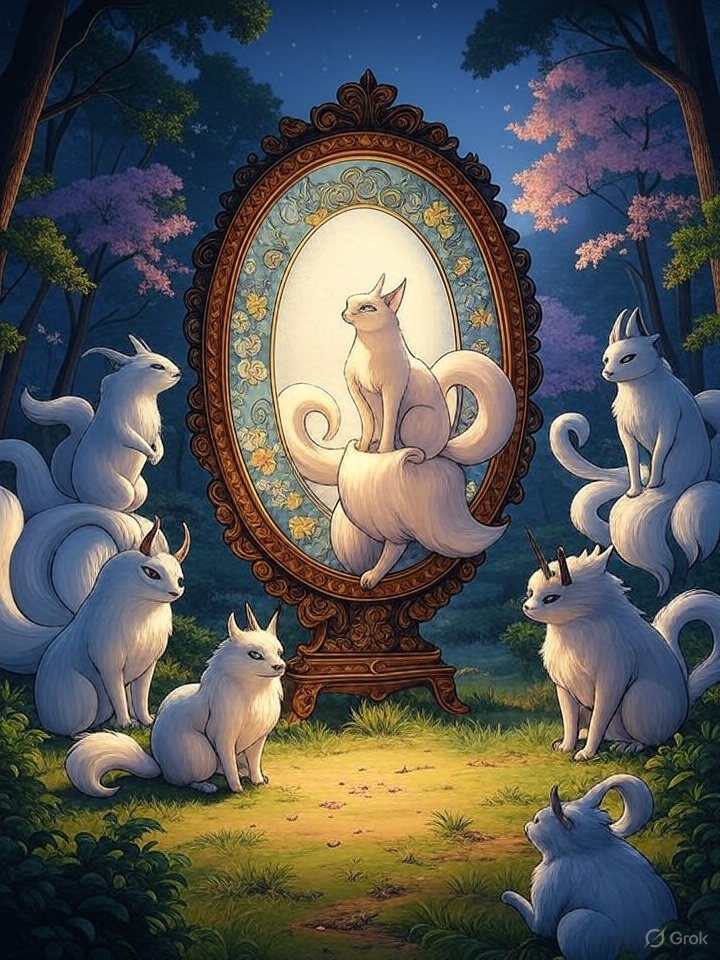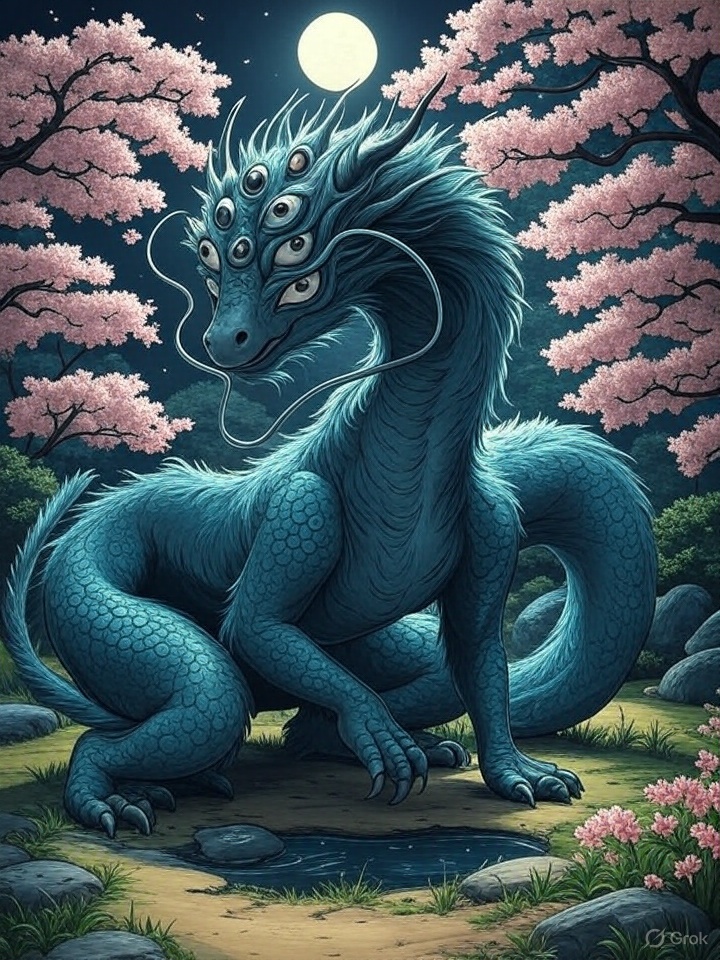Name Meaning
Overview
Ungaikyō (雲外鏡) translates to “mirror beyond the clouds,” referring to its magical ability to show visions beyond the normal world.
- Un (雲) = cloud
- Gai (外) = beyond
- Kyō (鏡) = mirror
Origin
- Appears in Edo-period yokai scrolls and literature.
- Often depicted as a tsukumogami — an object yokai born from an old mirror.
- May be linked to Buddhist or Taoist traditions of scrying and divination.
Appearance
- A traditional round bronze mirror with strange patterns on the back.
- Sometimes has an eye or a demonic face on its reflective surface.
- May glow or emit an aura when activated.
Behavior & Myths
- Shows visions of distant places, spirits, or the viewer’s true nature.
- Used by sorcerers or monks for divination.
- May act mischievously, showing illusions or manipulating viewers.
Symbolism
- Represents self-reflection and hidden truths.
- Symbolic of the supernatural insight and spiritual perception.
- A cautionary image about the dangers of seeking too much knowledge.

